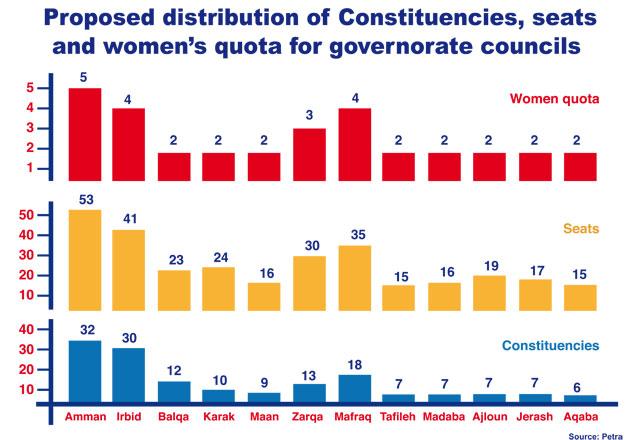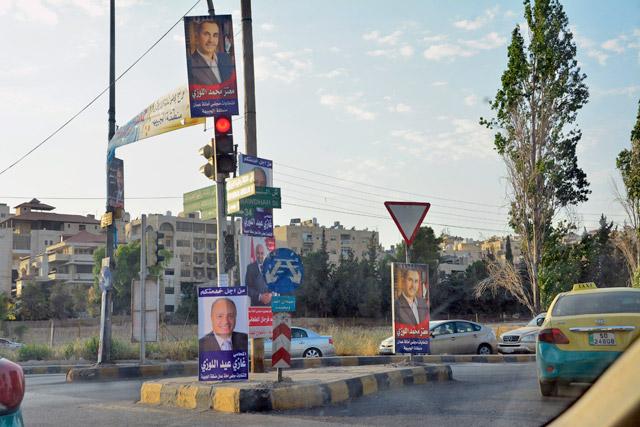You are here
Proposed by-law increases seats, women’s quota at governorate councils
By JT - Feb 18,2017 - Last updated at Feb 18,2017

AMMAN — The number of constituencies in the Kingdom, under a draft by-law amending the 2017 by-law of electoral districts of governorate councils, increased from 145 to 158, the Jordan News Agency, Petra, reported on Saturday.
The constituencies will form 12 councils, 85 per cent of whose members will be elected by citizens and 15 per cent appointed by the Cabinet, under the by-law as proposed by the Ministry of Municipal Affairs.
The amendments, which have yet to be endorsed by the Cabinet, aim at achieving a balance in the distribution of constituencies, taking into consideration population density “to ensure just representation”.
The 158 districts involve 304 seats that are distributed as following: Amman is divided into 32 districts with 53 seats; Irbid (30-41); Balqa (12-23); Karak (10-24); Maan (9-16); Zarqa (13-30); Mafraq (8-35); Tafileh (7-15); Madaba (7-16); Ajloun (7-19); Jerash (7-17); and Aqaba (7-15).
Under Article 3 of the by-law, women’s quota has additional 32 seats, representing 10 per cent of the elected members at each council, to be distributed as the following: five seats for Amman; four seats for each of Irbid and Mafraq; three seats for Zarqa; and two seats for each of Balqa, Karak, Maan, Madaba, Ajloun, Jerash, Tafileh and Aqaba.
Article 6-D of the Decentralisation Law authorises the Council of Ministers, upon a recommendation by the interior minister, to appoint 15 per cent of elected members, providing that one-third of them be women.
Last week, the Independent Election Commission’s Board of Commissioners decided to conduct the municipal and governorate council elections in all constituencies on August 15.
The decision followed one by the Cabinet earlier in the day to conduct the elections as stipulated in the municipalities and decentralisation laws.
Governorate councils will be elected for a four-year term to endorse strategic plans, budgets, infrastructure and service projects in their respective areas. The Cabinet holds the power to dismantle elected councils and call for new elections, or postpone elections.
Related Articles
AMMAN — The Independent Election Commission (IEC) on Tuesday, the second day of applying to run for municipal and governorate councils, proc
AMMAN — A total of 6,950 Jordanians have registered for their candidacies for the upcoming local and municipal elections, the Independent El
AMMAN — The Greater Amman Municipality (GAM) on Thursday urged candidates running in the local and municipal council elections to abide by i
















